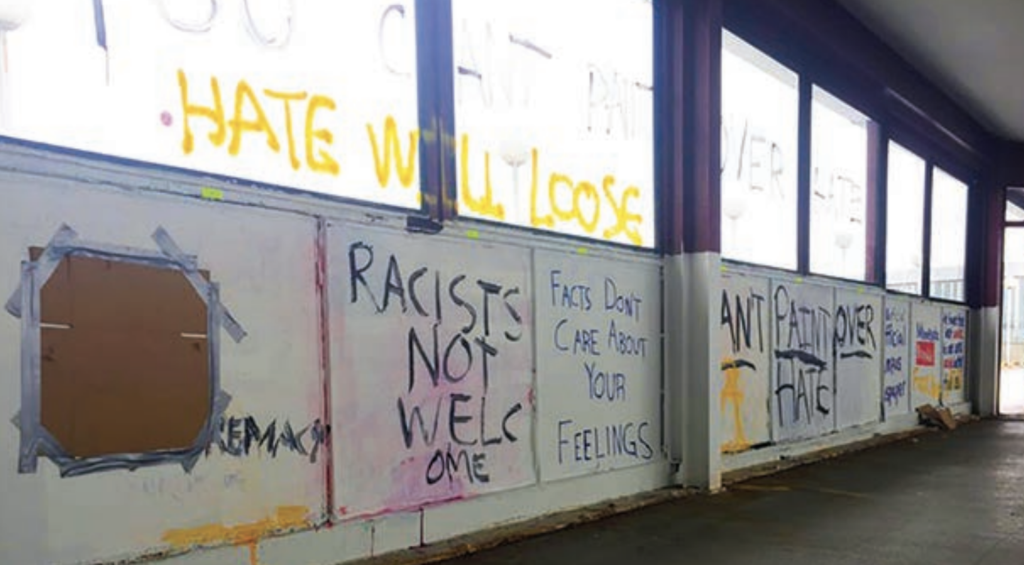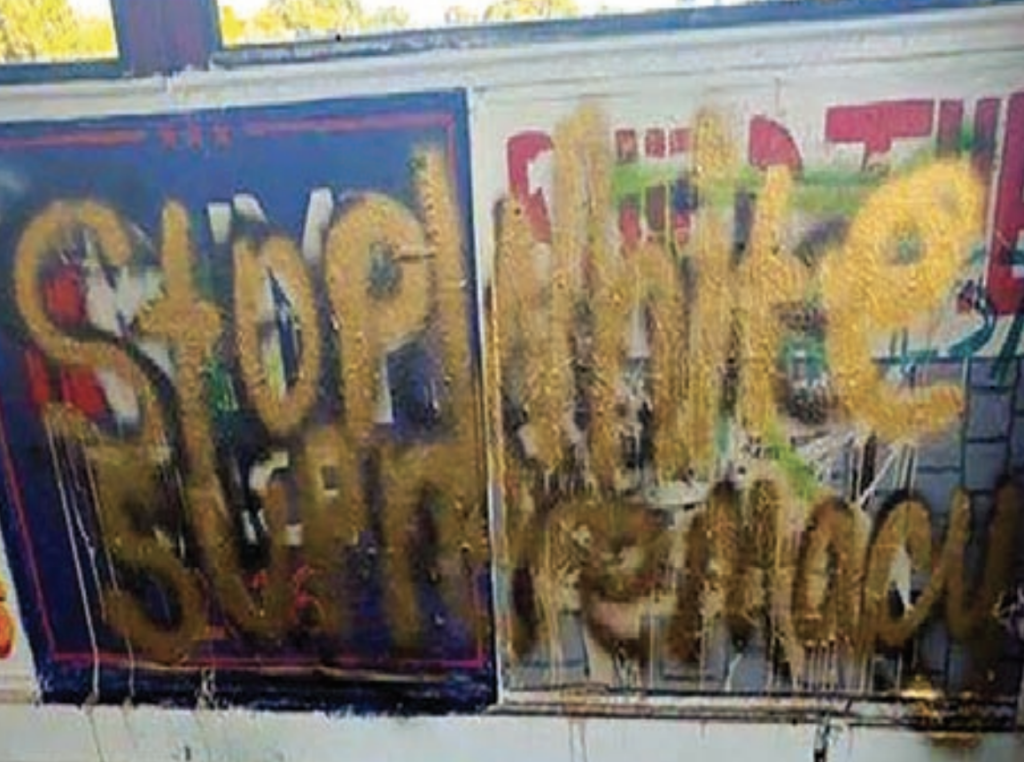Freedom fighter
Undaunted by radical campus bullies at the University of Minnesota—which included some members of its administration—Madison Faupel is plotting a career in politics.
After an internship with Morgan Stanley, Madison Faupel had once planned to use her business degree to pursue a career as a stock broker on Wall Street. The outgoing president of Minnesota’s College Republicans—and battle-tested combatant in the fight for on-campus free speech—now plans on a career in politics.
“I can’t stop fighting,” she says. “I can’t sit here and watch this loud, obnoxious, crazy group of people try and take away our constitutional rights. It has completely shifted my future. I want to continue the fight for freedom and liberty.”
Her passion, she says, “lies completely in preserving freedom and liberty, because I feel like for the last four years I have been fighting so hard just to be able to say what I want. People don’t realize how bad it is.”
Faupel does. In late September 2016, the College Republicans responded along with other campus organizations to an annual invitation from the university to paint three promotional signs on panels that line the covered pedestrian walkway over the Washington Avenue bridge between the U’s east and west bank campuses. They were heady days for the campus group. By the time Faupel became chair of the College Republicans in 2016, the student organization was enjoying “massive turnouts” at campus events and membership consisted of a variety of young conservative activists. Trump people, “never Trumpers” and “quite a few” libertarians. Members convened on the bridge to create three hand-painted signs. One said, “College Republicans: Best Party on Campus;” another, “Trump-Pence 2016;” and a third said, “Build the Wall.”
It was the last one that unleashed a campus ruckus that tested Faupel’s resolve as a leader and exposed the university’s embarrassing inability or disinclination to reign in the bullying behavior of protesters.
Faupel recalls that vandals had defaced their signs even before the paint was dry, covering them with “Stop White Supremacy” and Black Lives Matter fists. university officials joined in the criticism of signage, some using their official email to call it “xenophobic” and “racist.”


When university officials announced a campus “conversation” about the controversy, Faupel jumped at the chance to promote reasonable dialogue. “I think the best and the healthiest approach, and the thing that can bring us together, is open dialogue and debate, understanding and hearing out the other side in a respectful manner, and maybe gaining insight that you didn’t have before,” she says. She wrote up some talking points, and prepared to “listen respectfully, which I did.”
Her optimism quickly dissolved as 150 protesters hijacked the event and took over the podium for 90 minutes of insults and attacks on the College Republicans and others. When the demonstrators realized Faupel was still in the room, they physically surrounded her and personalized their taunts and name-calling. “People were saying the most absurd things, like, ‘Why are you racist?’ Or ‘Why do you want us dead?’ A group of Somali women came after me and asked, ‘Why do you hate the Somalis?’”
“It was scary,” she recalls, “but I wasn’t going to let this crazy, fascist behavior intimidate me. I just kind of owned it. I’m never one to back down or hide from what I believe in.”
Her determination earned kudos from national media that covered her predicament including Fox News and the National Review. American Experiment’s President John Hinderaker also described her courage in his Power Line column.
Months later, while celebrating a friend’s birthday in Uptown, she received a text threat from someone who recognized her. “We’re on to you, Madison Faupel,” it said. “We will not let you continue your leadership of bigotry and hate. We are on your ass. We won’t stop until you’re done.” It caught Madison off-guard. “Oh my gosh. Okay, this is not a joke. This is not someone messing with me. This is really scary.”
She later received random Facebook threats with links to a Minnesota-based Antifa group. The website included a description of Madison, her phone number, her parents’ phone number, her campus address, her home address, and other personal information and pictures of her. “It’s one thing to have people, like protesters, yelling at you on campus, but it wasn’t until this Antifa situation where I was like, I am not safe here, nor am I safe in my apartment. I’m not safe at home. They have all my information.”
“I don’t think people realize that this is happening on every college campus,” Madison says now. “The students learn that they can shut down ideas if they scream loud enough, or throw a big enough fit.” And protesters are encouraged by media coverage, she says.
“Any media we get is about the protesters,” she says, citing a recent campus event that featured conservative commentator Ben Shapiro. The sold-out venue held 400 people and the waiting list for tickets exceeded 1,000 people. But the news coverage of the event revolved around 25 protesters.
Faupel vows to continue her fight, and is weighing options about her future. The Rochester native is working with hometown Senator Carla Nelson on a free speech bill to help protect students’ free speech rights on campus.
“I want to kind of just keep doing things like that,” she says. “I don’t see being elected to office in my future, but you never know. Never say never.”